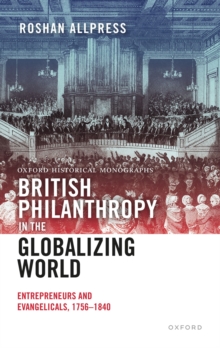
Debtor Diplomacy : Finance and American Foreign Relations in the Civil War Era 1837-1873 Hardback
by Jay Sexton
Part of the Oxford Historical Monographs series
Hardback
Description
The United States was a debtor nation in the mid-nineteenth century, with half of its national debt held overseas.
Lacking the resources to develop the nation and to fund the wars necessary to expand and then preserve it, the United States looked across the Atlantic for investment capital.
The need to obtain foreign capital greatly influenced American foreign policy, principally relations with Britain.
The intersection of finance and diplomacy was particularly evident during the Civil War when both the North and South integrated attempts to procure loans from European banks into their larger international strategies.
Furthermore, the financial needs of the United States (and the Confederacy) imparted significant political power to an elite group of London-based financiers who became intimately involved in American foreign relations during this period.
This study explores and assesses how the United State's need for capital influenced its foreign relations in the tumultuous years wedged between the two great financial crises of the nineteenth century, 1837 to 1873. Drawing on the unused archives of London banks and the papers of statesmen on both sides of the Atlantic, this work illuminates our understanding of mid-nineteenth-century American foreign relations by highlighting how financial considerations influenced the formation of foreign policy and functioned as a peace factor in Anglo-American relations.
This study also analyses a crucial, but ignored, dimension of the Civil War - the efforts of both the North and the South to attract the support of European financiers.
Though foreign contributions to each side failed to match the hopes of Union and Confederate leaders, the financial diplomacy of the Civil War shaped the larger foreign policy strategies of both sides and contributed to both the preservation of British neutrality and the ultimate defeat of the Confederacy.
Information
-
Out of stock
- Format:Hardback
- Pages:300 pages, numerous graphs, 2 tables
- Publisher:Oxford University Press
- Publication Date:21/07/2005
- Category:
- ISBN:9780199281039
Information
-
Out of stock
- Format:Hardback
- Pages:300 pages, numerous graphs, 2 tables
- Publisher:Oxford University Press
- Publication Date:21/07/2005
- Category:
- ISBN:9780199281039










